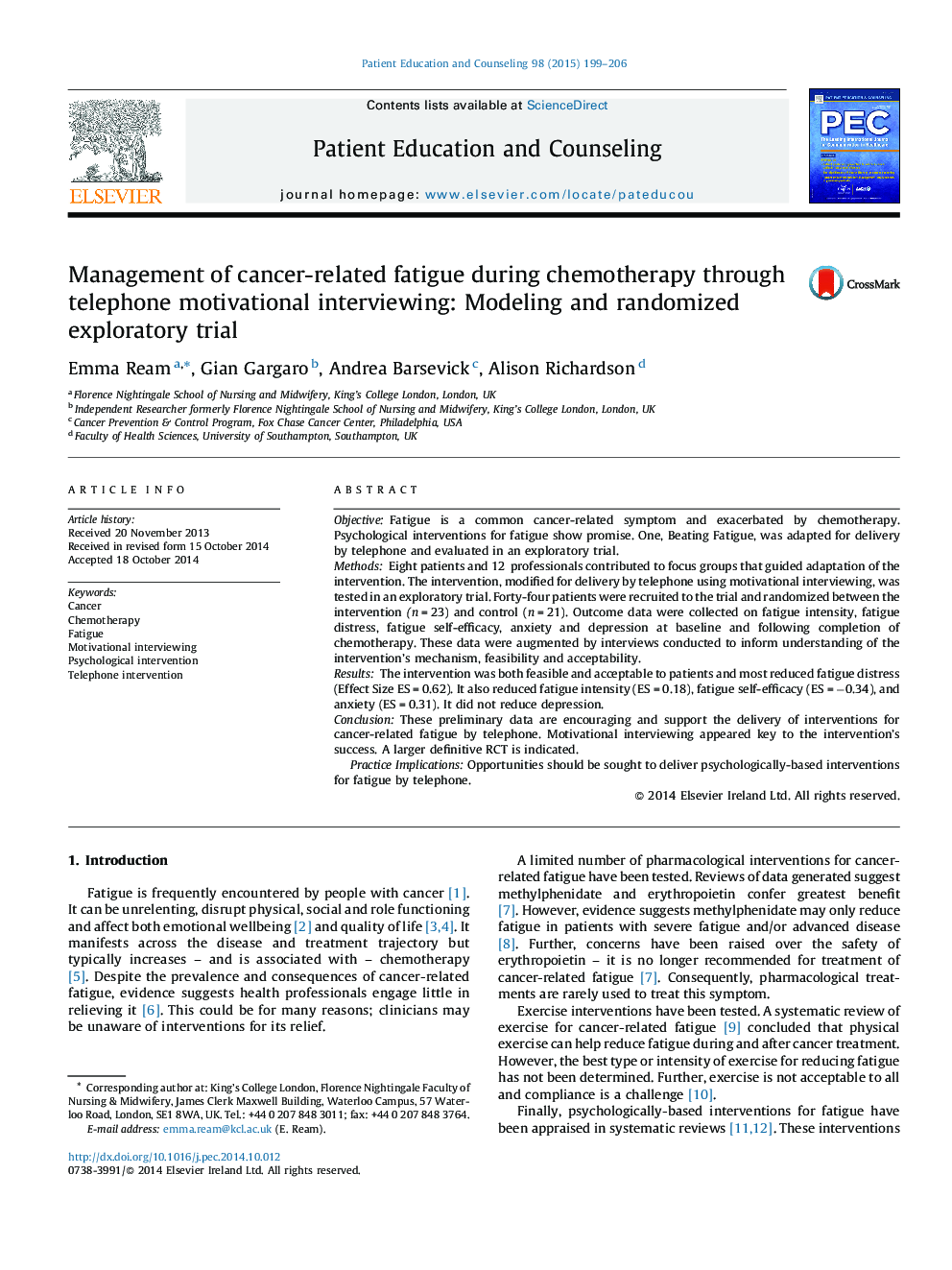| کد مقاله | کد نشریه | سال انتشار | مقاله انگلیسی | نسخه تمام متن |
|---|---|---|---|---|
| 6153700 | 1246048 | 2015 | 8 صفحه PDF | دانلود رایگان |
- Psychologically-based interventions for cancer-related fatigue can successfully be delivered by telephone.
- Similar outcomes can be generated when interventions are delivered by telephone as when they are delivered face-to-face.
- Motivational interviewing is seldom used when delivering interventions for supported self-management in people with cancer. This study suggests that it may enhance their uptake; opportunities should be sought to use this approach more often in clinical practice.
ObjectiveFatigue is a common cancer-related symptom and exacerbated by chemotherapy. Psychological interventions for fatigue show promise. One, Beating Fatigue, was adapted for delivery by telephone and evaluated in an exploratory trial.MethodsEight patients and 12 professionals contributed to focus groups that guided adaptation of the intervention. The intervention, modified for delivery by telephone using motivational interviewing, was tested in an exploratory trial. Forty-four patients were recruited to the trial and randomized between the intervention (n = 23) and control (n = 21). Outcome data were collected on fatigue intensity, fatigue distress, fatigue self-efficacy, anxiety and depression at baseline and following completion of chemotherapy. These data were augmented by interviews conducted to inform understanding of the intervention's mechanism, feasibility and acceptability.ResultsThe intervention was both feasible and acceptable to patients and most reduced fatigue distress (Effect Size ES = 0.62). It also reduced fatigue intensity (ES = 0.18), fatigue self-efficacy (ES = â0.34), and anxiety (ES = 0.31). It did not reduce depression.ConclusionThese preliminary data are encouraging and support the delivery of interventions for cancer-related fatigue by telephone. Motivational interviewing appeared key to the intervention's success. A larger definitive RCT is indicated.Practice Implications: Opportunities should be sought to deliver psychologically-based interventions for fatigue by telephone.
Journal: Patient Education and Counseling - Volume 98, Issue 2, February 2015, Pages 199-206
